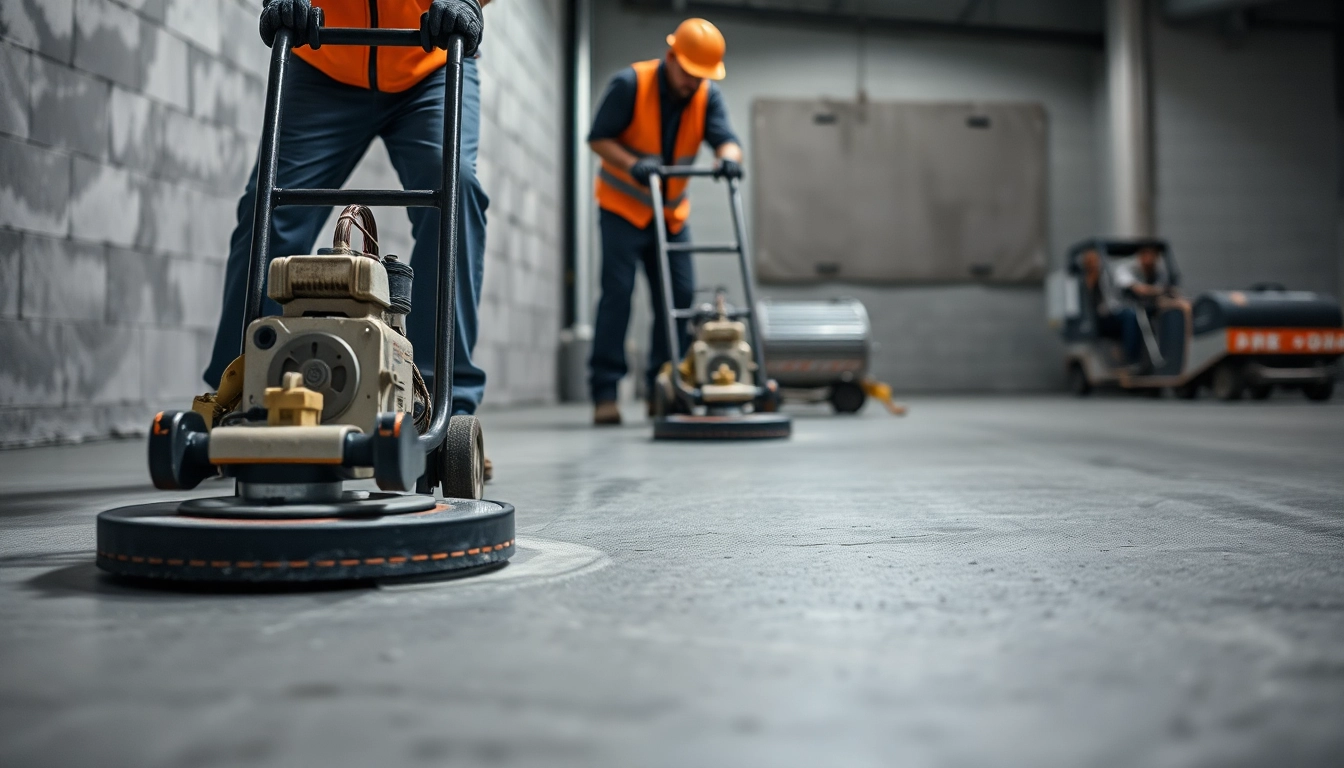Understanding the Importance of Floor Preparation in Birmingham
In the bustling city of Birmingham, where commercial and residential developments are continually evolving, the foundation of any successful flooring project begins long before the first tile or hardwood plank is laid. Proper floor preparation Birmingham is a critical step that ensures durability, aesthetic appeal, and overall longevity of flooring installations. Skipping or inadequately performing this stage can lead to costly repairs, uneven surfaces, and compromised safety, making it an essential focus for property owners, contractors, and flooring specialists alike.
Why Proper Surface Prep Ensures Durability
Quality floor preparation creates a stable, clean, and level base that significantly enhances the bonding strength of subsequent coatings or flooring materials. This process involves removing surface contaminants such as grease, dust, paint residues, and old adhesives, which could impede adhesion. Additionally, especially in Birmingham’s climate, moisture management through proper sealing and drying is vital to prevent future issues like warping or delamination. When executed correctly, professional prep work extends the lifespan of your flooring, reduces maintenance costs, and preserves the structural integrity of the underlying surface.
Common Challenges with Unprepared Floors
Experience shows that neglecting proper preparation often results in several issues, including carpet fraying, tiles cracking, or expansive hardwood gaps. Uneven surfaces can cause trip hazards and uneven wear patterns, affecting both safety and visual aesthetics. Furthermore, unaddressed moisture levels are a prevalent concern in Birmingham, where inconsistent humidity and underground water ingress can cause significant damage if not correctly managed during preparation.
Key Benefits of Professional Floor Preparation Services
- Enhanced adhesion for flooring materials, ensuring long-term performance
- Increased safety by eliminating trip hazards and uneven surfaces
- Reduced risk of costly repairs and rework over the flooring’s lifespan
- Optimized appearance by achieving a smooth, level surface
- Time and cost savings through efficient, expert-level preparation techniques
Types of Floor Preparation Techniques Available in Birmingham
Diamond Grinding and Surface Levelling
Diamond grinding is a highly effective method for smoothing and leveling concrete surfaces. Using industrial-grade diamond abrasives, this technique quickly removes high spots, surface laitance, and uneven patches, creating a flat, secure base suitable for coatings like epoxy or resin. In Birmingham, many commercial facilities utilize diamond grinding to refurbish existing floors with minimal disruption, thanks to its speed and precision. This technique also increases surface adhesion, which is particularly critical before applying heavy-duty coatings or overlays.
Concrete Repair and Patching Methods
Cracked or damaged concrete floors require targeted repair techniques such as epoxy injections or concrete patching. For substantial repairs, professionals often employ fiber-reinforced overlays or self-leveling compounds that fill voids and restore surface integrity. Ensuring these repairs are adequately cured and bonded sets the foundation for a seamless, durable surface capable of supporting various types of floor coverings.
Resurfacing and Cleaning for Optimal Adhesion
Resurfacing involves applying a thin layer of concrete or polymer overlay to improve surface texture and appearance while also preparing the floor for subsequent layers. Complemented by thorough cleaning—removing oils, dust, and loose debris—this process guarantees optimal adhesion. Techniques like shot blasting or chemical cleaning agents are popular in Birmingham for preparing delicate surfaces or restoring severely worn floors to a factory-finished state.
Choosing the Right Floor Preparation Partner in Birmingham
Qualities to Look for in a Professional Service Provider
Selecting an experienced, reputable floor preparation contractor is crucial. Key qualities include certified technicians, proven project portfolios, adherence to health and safety standards, and use of industry-grade equipment. A trustworthy provider will also offer tailored assessments and transparent quotes, ensuring you understand the scope and costs upfront.
Questions to Ask Before Hiring
- What preparation techniques do you recommend for my specific project?
- Can you provide references or case studies of similar work in Birmingham?
- What is your timeline for completing the preparation?
- How do you handle moisture and contamination issues?
- What warranties or guarantees are included?
How to Evaluate Quotes and Ensure Value
When comparing quotations, consider not only the price but also the scope of work, materials used, and the provider’s reputation. A detailed proposal should specify all preparation steps, equipment used, and timelines. Remember, the cheapest option may lack the necessary quality or experience—prioritize value, durability, and service quality to ensure your investment pays off in the long run.
Implementation Steps for Effective Floor Preparation
Initial Assessment and Surface Analysis
Successful projects begin with a thorough inspection of the existing surface, identifying issues such as cracks, moisture levels, contamination, and structural stability. This assessment allows professionals to develop an appropriate preparation strategy, whether it involves repairs, cleaning, or leveling.
Preparation Plan and Timeline
Once the surface is analyzed, a detailed plan is created outlining techniques, equipment, and sequence of work. Clear communication of timelines is essential to minimize disruption, especially in commercial or busy residential sites. Factors such as weather, surface condition, and scope influence the scheduling and duration of prep work.
Post-Preparation Inspection and Quality Control
After completing the preparation process, a comprehensive inspection ensures the surface meets specified standards. Tests for moisture content, surface flatness, and cleanliness confirm readiness for the next flooring stage. Any deficiencies are addressed before proceeding to avoid future problems.
Measuring Success and Long-term Impact in Floor Preparation
Performance Indicators for Prepared Floors
Effective preparation manifests through indicators such as smoothness, absence of cracks, proper adhesion during testing, and resistance to wear. Visual inspections combined with technical tests, like moisture measurement, provide concrete measures of success.
Maintenance Tips to Prolong Surface Integrity
Maintaining a well-prepared floor involves routine cleaning, prompt repairs of damage, and controlling environmental factors like humidity and spills. For decorative finishes, resealing or recoating may be necessary periodically to preserve appearance and performance.
Case Studies of Successful Projects in Birmingham
In Birmingham’s commercial sector, a local logistics warehouse renovated its concrete floors through diamond grinding and epoxy coating, resulting in a surface that withstood high traffic with minimal wear over five years. Similarly, a residential developer applied patching and resurfacing techniques to enhance the durability of apartment complex hallways, significantly reducing long-term repair costs. These examples highlight that high-quality prep work leads to tangible, lasting benefits.









